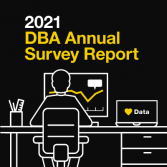
Changing Times, Reporting Profits
By Chris Lang, Founding Partner, Flash Partners and DBA Expert
In July this year HMRC announced a consultation on non-incorporated entities (i.e. any company that isn’t a Ltd or PLC) reporting their profits in the same time frame that individuals report their income. This means that, regardless of what a company like this decides is their financial year, they will need to report and pay tax on profits generated between April and March of each year.
HMRC have proposed a one year transition period during which the change will be made. The initial intention was for this transition period to start from April 2022. However, the government has now agreed to postpone this until April 2024 meaning the tax year 2024/25 will be the transition period.
An example:
Mr A and Mr B jointly own XYZ LLP. The LLP makes £20k a month, so £240k in a year. As this is an LLP, Mr A and Mr B pay income tax and national insurance on this amount and the balance is their take home pay.
XYZ LLP currently reports its profits for the 12 months to the end of June. Their next year end is 30 June 2022. Mr A and Mr B will both report profits of £120k (50% of the LLP’s £240k profits) in their 2022/23 self-assessment tax return which will be filed before 31 January 2024. The same will happen in 2023.
However, when they get to their tax return for the 2024/25 tax return they will need to include the £120k for the year to 30 June 2024 plus the profits they make in the 9 months from July 2024 to March 2025 (9 x £20k = £180k), so £300k in total.
The effect of this is to bring forward the timing of when tax will be paid on profits which could cause major cash flow issues.
Suggestions to mitigate the impact on your business
 Put money aside starting as early as possible to ensure cash is available when this happens
Put money aside starting as early as possible to ensure cash is available when this happens- Speak to a tax advisor/accountant as early as possible
- Form a Limited company
We will update on the final outcomes of the consultation once completed by HMRC.
 2021 DBA Annual Survey Report launch
2021 DBA Annual Survey Report launch
On 13 October, the 2021 DBA Annual Survey Report was launched, and Esther Carder, Partner at Moore Kingston Smith presented a detailed analysis of the benchmarking data and trends across key performance metrics affecting design agencies, and gave insight into how to apply these valuable findings to your business. Our flagship report analyses fees, salaries, utilisation, income, recovery rates, benefits and trends of DBA member agencies. Watch the full recording here.

 Put money aside starting as early as possible to ensure cash is available when this happens
Put money aside starting as early as possible to ensure cash is available when this happens 2021 DBA Annual Survey Report launch
2021 DBA Annual Survey Report launch